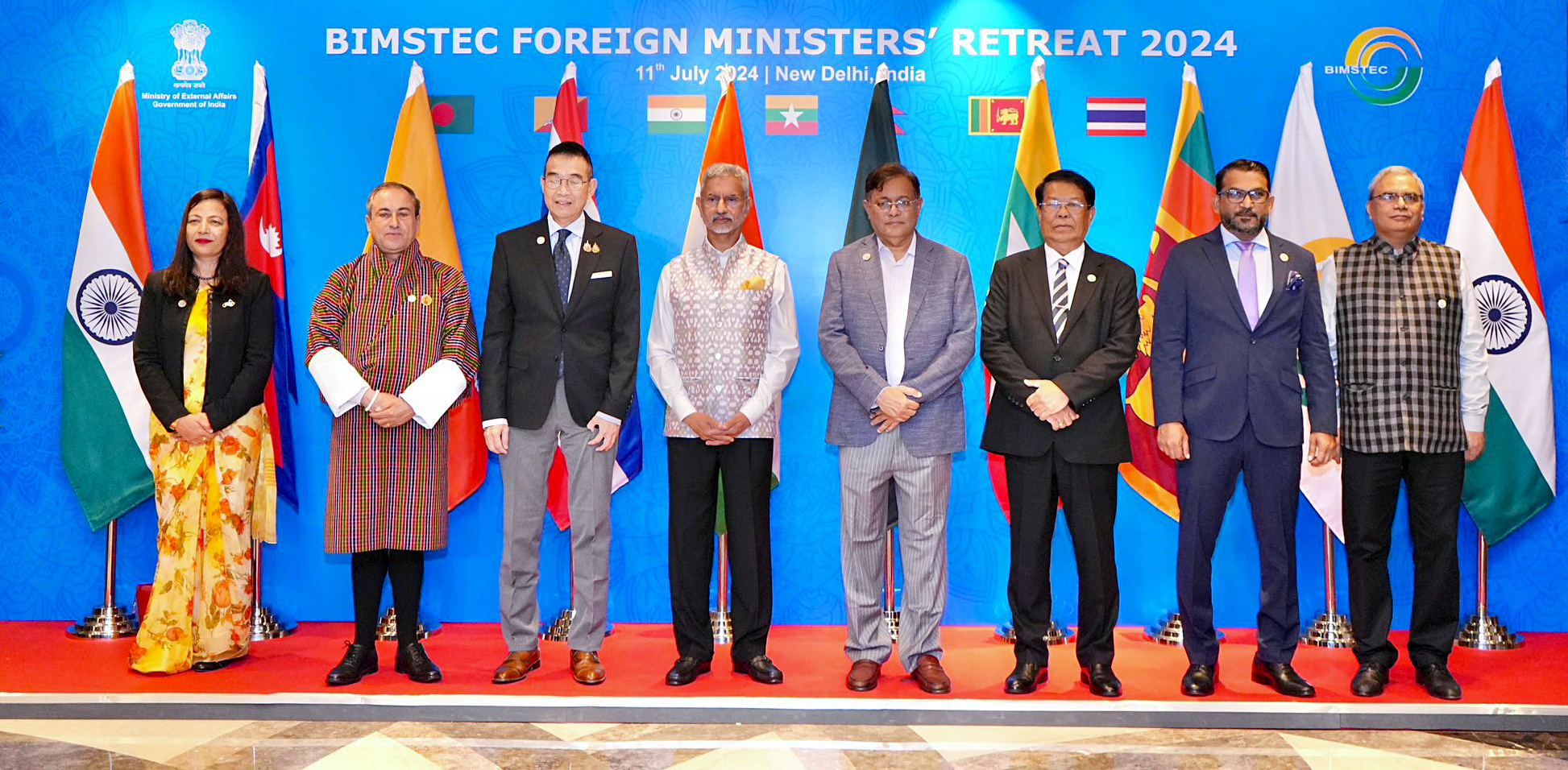As Foreign Ministers from the BIMSTEC member countries gathered in the national capital for a two-day retreat meeting on Thursday to bolster cooperation among Bay of Bengal countries, External Affairs Minister S Jaishankar said that the discussions will be helpful in infusing new energies, resources and commitment towards BIMSTEC cooperation.
Jaishankar welcomed colleagues from across the world for the second Bay of Bengal Initiative for Multi-Sectoral Technical and Economic Cooperation (BIMSTEC) Foreign Ministers’ Retreat.
He highlighted its significance within the country’s broader geopolitical frameworks like – Neighbourhood First, Act East Policy and SAGAR vision.
“Our challenge is to change that for the better and to do so rapidly. The retreat is meant to exchange ideas openly, candidly and fruitfully. We all benefited from the last such exercise in Bangkok” he said.
“The BIMSTEC Charter, for a start, has come into effect from 20 May this year. Global and regional developments also make it imperative that we find more solutions amongst ourselves.”
The retreat, attended by foreign ministers from BIMSTEC member countries, serves as a platform for exchanging ideas and fostering deeper cooperation across various domains including connectivity, trade, health, and digital infrastructure. Jaishankar expressed optimism about the outcomes, stating, “Our hope is that these would be expressed as shared and ambitious BIMSTEC Vision.”
The first edition of the BIMSTEC Foreign Ministers’ Retreat was held in Thailand’s Bangkok on 17 July 2023.
BIMSTEC is a regional organization that connects countries around the Bay of Bengal to promote economic growth, trade, and cooperation in areas like transportation, energy, and counter-terrorism. It aims to strengthen relationships and foster economic development among its member states, which include- Bangladesh, Bhutan, India, Myanmar, Nepal, Sri Lanka, and Thailand.
BIMSTEC stands as a beacon of regional collaboration, striving to achieve rapid economic development and social progress through joint initiatives among its member states.
Each member nation leads specific sectors, reflecting their expertise and commitment to collective advancement:
Bangladesh spearheads trade, investment, and development, including the blue economy, leveraging its strategic location and maritime resources. Sri Lanka focuses on science, technology, and innovation, fostering advancements in health and human capital. Bhutan leads efforts in environment and climate change, emphasizing sustainable practices.
India takes charge of security, including energy and disaster management. Myanmar oversees agriculture and food security, supporting food sustainability. Nepal drives people-to-people contact, promoting cultural exchange and poverty alleviation. Thailand enhances regional infrastructure and transport networks to facilitate seamless connectivity among member states.














